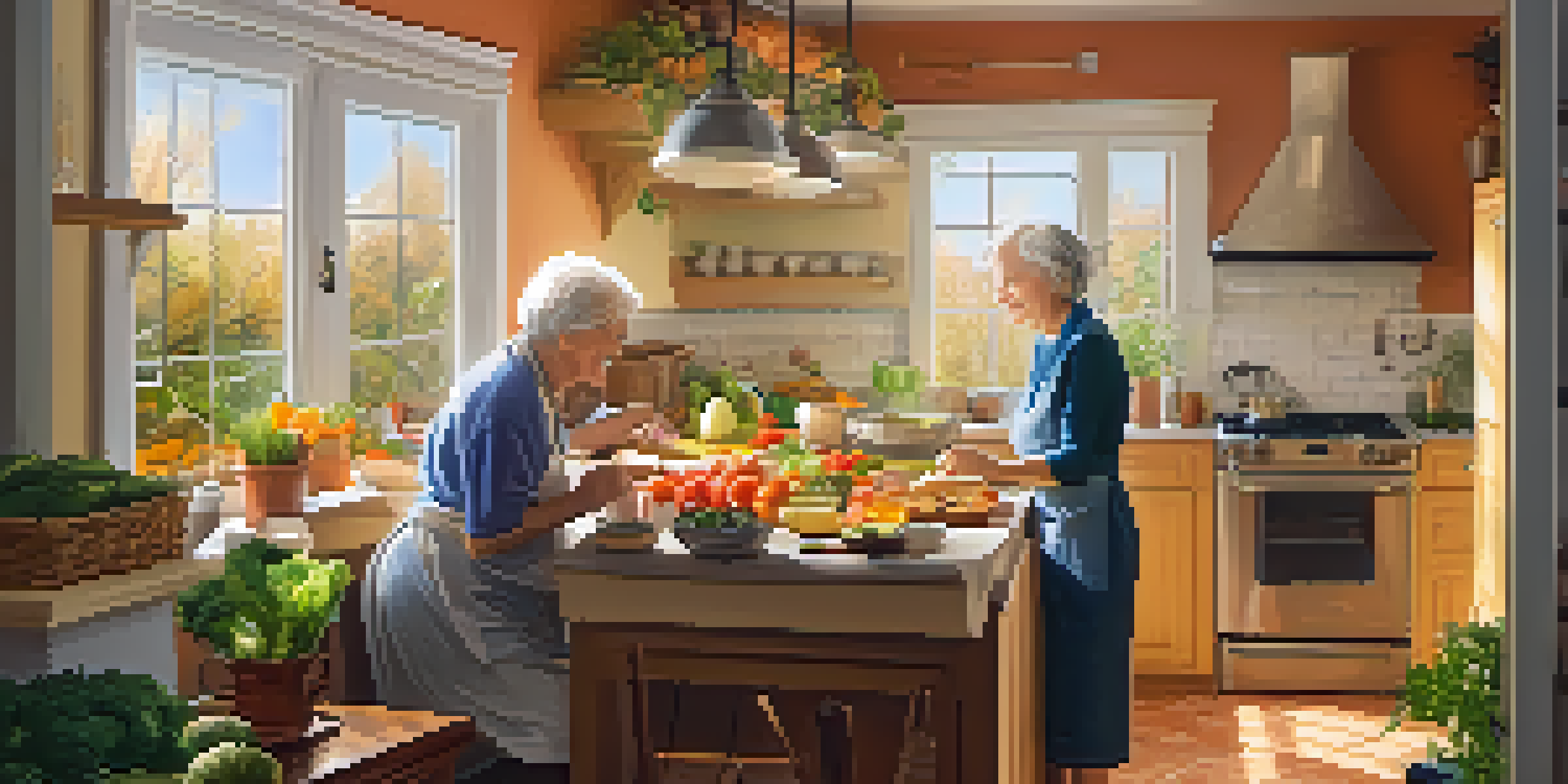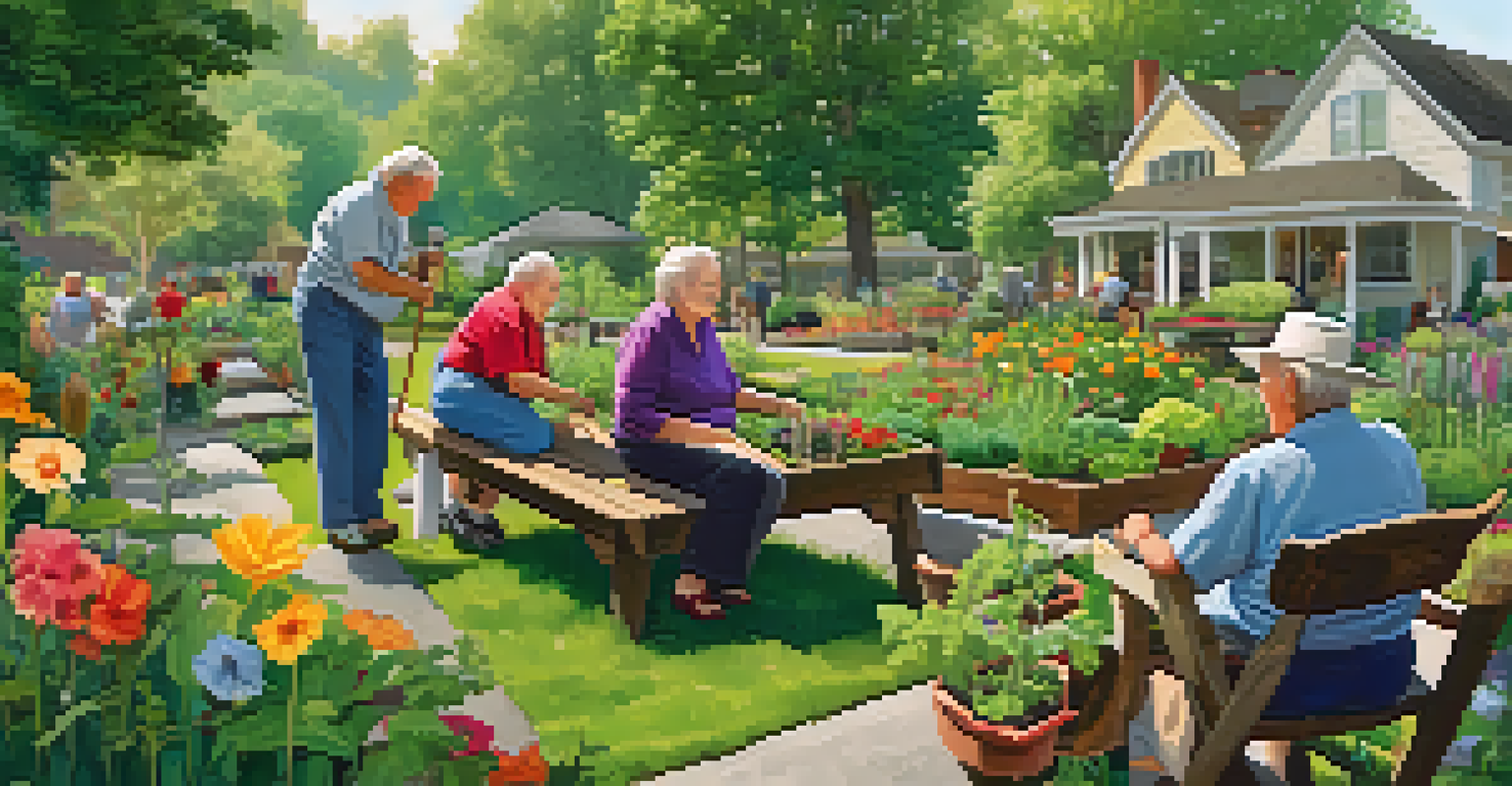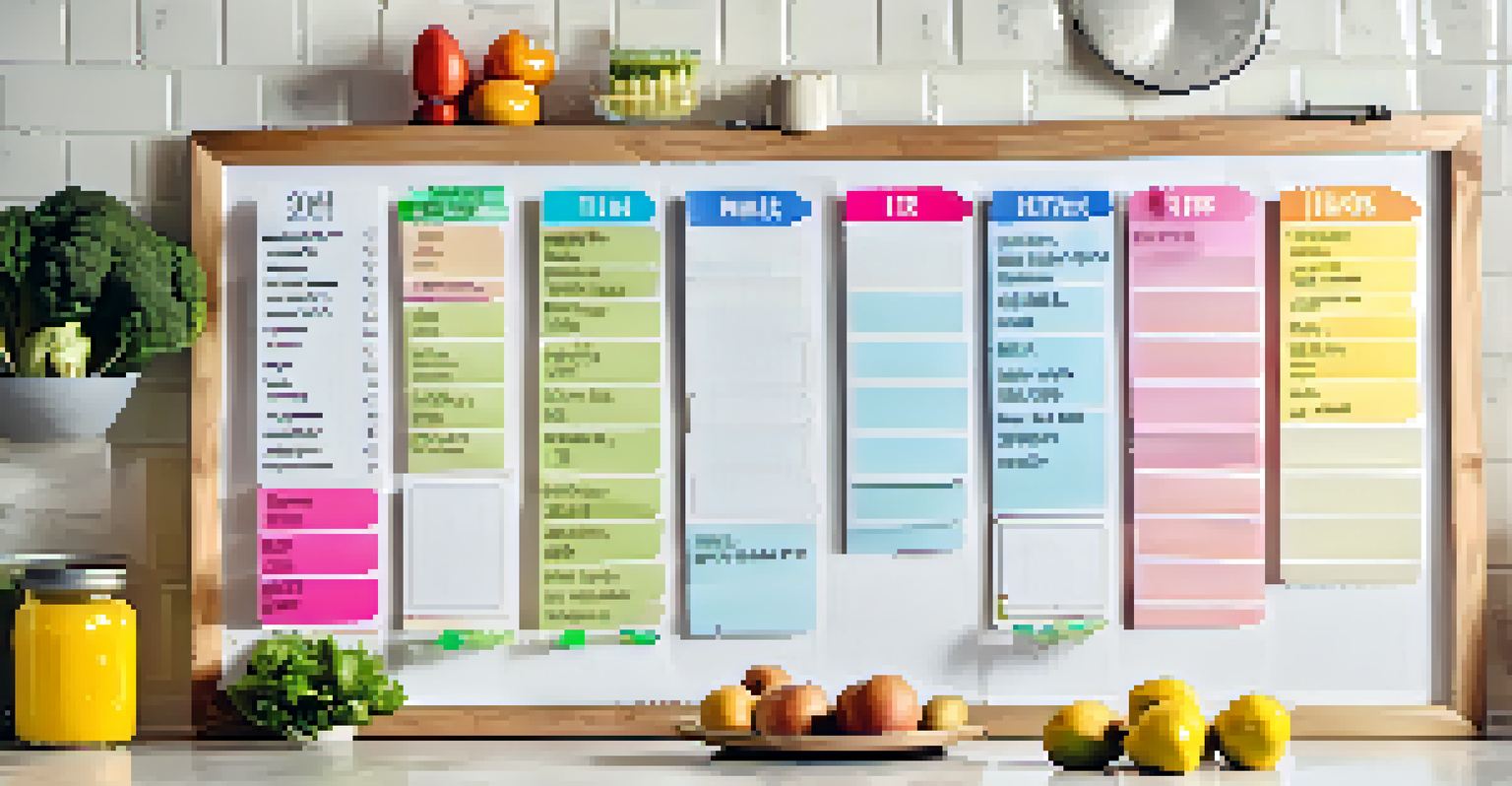Nutrition and Meal Programs for Seniors in Santa Monica

Understanding Nutritional Needs of Seniors
As we age, our bodies require different nutrients to maintain health. Seniors often need more calcium, vitamin D, and fiber, while needing fewer calories. This shift can make it challenging to get the right balance of nutrition without overeating.
You are what you eat, so don't be fast, cheap, easy, or fake.
It’s essential for seniors to focus on nutrient-dense foods—those packed with vitamins and minerals but low in calories. For example, leafy greens, whole grains, and lean proteins should be staples in their diets. This approach helps ensure they are meeting their dietary needs without feeling overly full.
Moreover, hydration is crucial. Seniors may not feel thirsty, which can lead to dehydration. Encouraging regular fluid intake, through water or hydrating foods, can significantly improve overall health and well-being.
Meal Programs Available in Santa Monica
Santa Monica offers various meal programs tailored for seniors, ensuring they have access to nutritious food. These programs often include home-delivered meals, community dining options, and subsidized grocery services. This variety allows seniors to choose what suits their lifestyle best.

One popular option is the Meals on Wheels program, which delivers hot, balanced meals directly to seniors' homes. This service not only provides essential nutrition but also offers a friendly face and a quick social interaction that many seniors cherish.
Nutrient-Dense Foods Are Essential
Seniors need to focus on nutrient-dense foods that provide essential vitamins and minerals while being low in calories.
Additionally, local community centers often host group meals, encouraging socialization among seniors. This not only helps with nutrition but also combats loneliness, which is a significant concern for the elderly.
Benefits of Balanced Nutrition for Seniors
Balanced nutrition plays a vital role in enhancing seniors' quality of life. Proper nutrition helps maintain energy levels, supports cognitive function, and strengthens the immune system. When seniors eat well, they are more likely to stay active and engaged in their communities.
The greatest wealth is health.
Furthermore, good nutrition can help manage chronic conditions like diabetes and heart disease. For instance, a diet rich in fruits, vegetables, and whole grains can stabilize blood sugar levels, while omega-3 fatty acids found in fish can promote heart health.
By prioritizing balanced meals, seniors can enjoy greater independence and a better overall sense of well-being. This empowerment is critical for fostering their confidence in making healthy choices.
Incorporating Variety in Senior Diets
Variety is key to maintaining interest in meals and ensuring a wide range of nutrients. Seniors can benefit from experimenting with different cuisines, which can introduce new flavors and textures. This not only makes meals more enjoyable but also encourages trying foods that might be more nutritious.
For example, incorporating Mediterranean-style dishes—rich in fruits, vegetables, fish, and healthy fats—can be both delicious and beneficial for heart health. Cooking classes specifically designed for seniors can also inspire them to explore new recipes and ingredients.
Meal Programs Support Seniors
Santa Monica offers various meal programs that cater to seniors, providing essential nutrition and opportunities for social interaction.
Moreover, involving family members in meal preparation can turn cooking into a bonding experience. This not only makes meals more enjoyable but also fosters intergenerational connections that can enhance emotional well-being.
Addressing Dietary Restrictions and Preferences
Many seniors face dietary restrictions due to health conditions, allergies, or personal preferences. It’s essential for meal programs to accommodate these needs to ensure that all seniors can enjoy nutritious meals. Programs in Santa Monica often offer customizable meal options, allowing seniors to select meals that fit their dietary requirements.
Common restrictions include low-sodium diets for heart health or gluten-free options for celiac disease. By providing alternatives, meal programs can help seniors maintain their health while still enjoying their food.
It's also important for seniors to communicate their preferences to their caregivers or meal providers. This open dialogue helps ensure that meals are both enjoyable and aligned with their health needs.
The Role of Community Support in Nutrition
Community support plays a crucial role in helping seniors access proper nutrition. Local organizations, churches, and volunteer groups often come together to create programs that provide meals, educational workshops, and social events. This sense of community not only enhances food security but also builds relationships that are vital for mental health.
For instance, many seniors benefit from participating in community gardens, where they can grow their own vegetables. This not only encourages healthy eating but also fosters a sense of accomplishment and connection to nature.
Community Boosts Nutritional Access
Local community support enhances access to nutritious food for seniors, fostering social connections and mental well-being.
Moreover, volunteering opportunities related to meal preparation and distribution can empower seniors, allowing them to give back to their communities while staying active and social.
Tips for Seniors to Plan Their Meals
Planning meals can be a great way for seniors to take control of their nutrition. A few simple tips can make meal prep easier and more enjoyable. For example, creating a weekly menu can help in making grocery shopping more efficient and less overwhelming.
Incorporating batch cooking—preparing larger quantities of meals that can be frozen for later—can save time and ensure healthy options are always on hand. This can be particularly useful for those who may find cooking daily to be a challenge.

Lastly, involving family members in the meal planning process can make it a fun activity. Sharing recipes and cooking together can create lasting memories while ensuring that seniors are eating well.